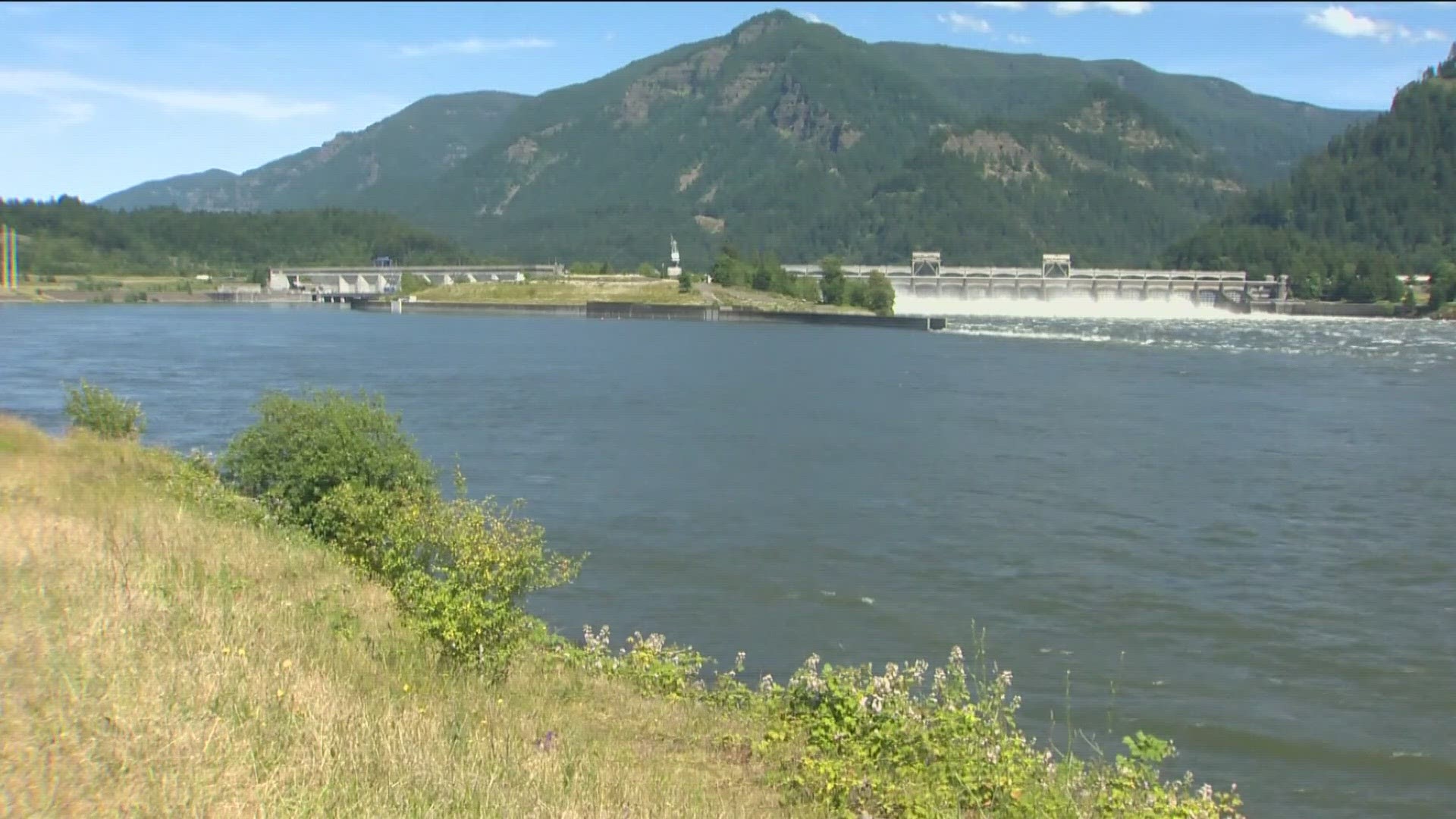BOISE, Idaho — The Biden administration on Thursday announced an agreement to support tribal-led efforts to help restore healthy salmon populations in the Upper Columbia River Basin.
In the agreement, tribes will receive a total of $208 million over the next 20 years to help the reintroduction of salmon to blocked habitats in the upper areas of the Columbia River. The tribes receiving the funding are the Confederated Tribes of the Coville Reservation, the Coeur d'Alene Tribe and the Spokane Tribe of Indians.
The $200 million of the funding comes from the Bonneville Power Administration, a marketing administration under the Department of Energy, and will be distributed over the next 20 years. The Department of the Interior (DOI) will provide the $8 million through the Bureau of Reclamation, and that money will be given over two years.
The plan is currently in Phase 2 Implementation - the second of four phases. It will involve research, testing biological assumptions, guiding management decisions, creating hatchery facilities, and assessing progress over the next 20 years.
Tribal cultures and communities relied on the wild salmon, steelhead and native resident fish that once thrived in the Upper Columbia River Basin. For countless generations, these tribes and their ancestors have protected and relied on native species as their main source of food and for ceremonial purposes, DOI says in a press release.
"Since time immemorial, tribes along the Columbia River System have relied on Pacific salmon, steelhead, and other native fish species for sustenance and their cultural and spiritual ways of life," Secretary of the Interior Deb Haaland said. "Today's historic agreement is integral to helping restore healthy and abundant fish populations to these communities."
The DOI says dams built in the Upper Columbia River Basin at the beginning of the 20th century - including the Grand Coulee Dam and Chief Joseph Dam - have prevented anadromous fish from migrating into the area, affecting the Colville, Coeur d'Alene, and Spokane tribes' traditional diets and ways of life. This has caused long-lasting effects on these tribal communities, such as altering traditional diets, depriving tribes of traditional ways and changing how Tribes teach children of spiritual beliefs.
"In 1940, tribes from around the Northwest gathered at Kettle Falls for a Ceremony of Tears to mourn the loss of salmon at their ancestral fishing grounds," said Jarred-Michael Erickson, chairman of the confederated tribes of the Colville Reservation. "Today the federal government is taking a major step toward righting that historic wrong by committing to support the tribally led, science-driven reintroduction of salmon above Chief Joseph and Grand Coulee dams. Together as partners, we will bring salmon back where they belong – to the waters of the Upper Columbia. The Colville Tribes looks forward to our children celebrating a Ceremony of Joy when salmon are permanently restored to their ancestral waters."
If the Phase 2 Implementation Plan proves successful, the DOI says it will lead into Phase 3, which includes the construction of salmon passages, habitat improvements and reintroducing salmon above Grand Coulee and Chief Joseph Dams.
Watch more Local News:
See the latest news from around the Treasure Valley and the Gem State in our YouTube playlist:
HERE ARE MORE WAYS TO GET NEWS FROM KTVB:
Download the KTVB News Mobile App
Apple iOS: Click here to download
Google Play: Click here to download
Watch news reports for FREE on YouTube: KTVB YouTube channel
Stream Live for FREE on ROKU: Add the channel from the ROKU store or by searching 'KTVB'.
Stream Live for FREE on FIRE TV: Search ‘KTVB’ and click ‘Get’ to download.

